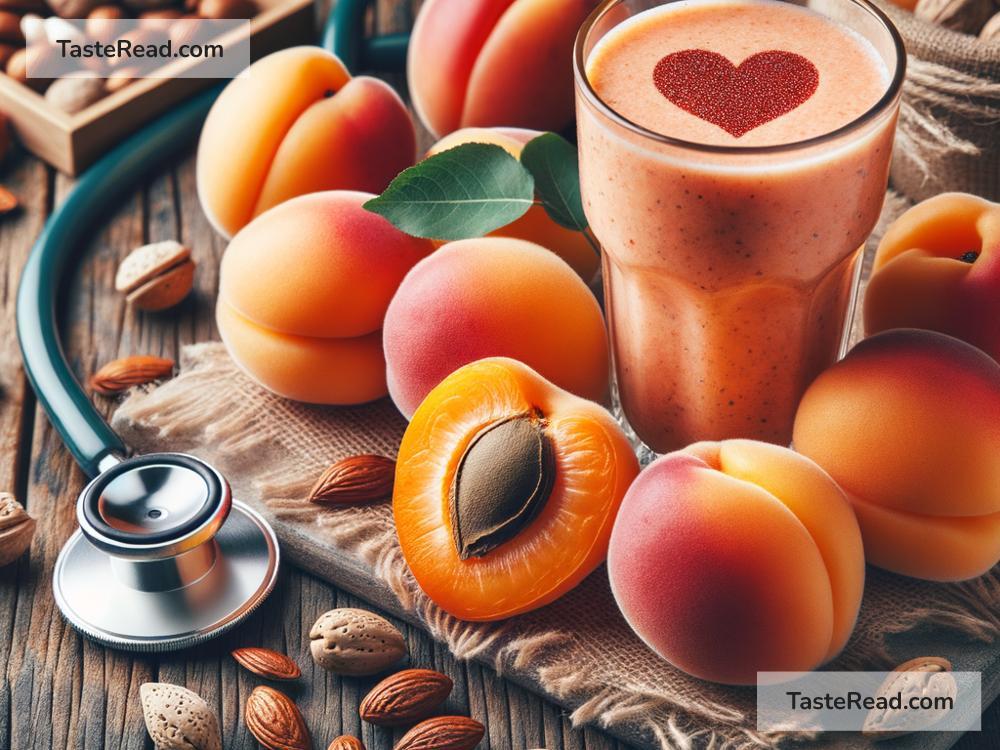The Surprising Link Between Apricots and Heart Health
When most people think about eating fruit for good health, they often focus on apples, oranges, or bananas. But there’s one underrated fruit that deserves a spot in your diet—apricots. Those small, golden-orange gems aren’t just tasty; they’re also packed with nutrients that may help protect your heart and boost overall health. Surprisingly, research and nutrition experts have found that apricots contain compounds that can significantly benefit your cardiovascular system. Let’s dive into the link between apricots and heart health, explained in simple, easy-to-understand terms.
What Makes Apricots Special?
Apricots may look small and humble, but inside, they’re bursting with goodness. These fruits are rich in vitamins, minerals, antioxidants, and fiber—all of which can play a role in keeping your heart healthy. Let’s take a closer look at the nutritional powerhouse inside apricots:
-
Potassium: Apricots are a great source of potassium, a mineral that helps balance fluids in the body and regulate blood pressure. High blood pressure increases the risk of heart disease, so maintaining healthy potassium levels is key.
-
Fiber: Apricots are loaded with dietary fiber. Fiber doesn’t just help with digestion; it also helps reduce bad cholesterol (LDL) levels in the bloodstream, improving overall heart health.
-
Antioxidants: Apricots are rich in antioxidants such as beta-carotene, vitamin C, and vitamin E. Antioxidants help protect the heart by combatting harmful free radicals that may damage cells and cause inflammation in blood vessels.
-
Polyphenols: These are plant compounds in apricots that support healthy blood circulation and reduce the risk of cardiovascular diseases.
What Does Science Say About Apricots and Heart Health?
Studies suggest that eating fruits like apricots may lower the risk of heart disease. For example, research has found that diets high in fiber improve cholesterol levels and help regulate blood pressure, two important factors for heart health. Additionally, polyphenols in apricots may reduce oxidative stress (damage caused by free radicals) and ease inflammation in the body.
Oxidative stress and inflammation are major contributors to heart disease. When your body is under constant stress from unhealthy habits, poor diet, or environmental factors, your heart faces long-term damage. Thankfully, the antioxidants in apricots can counteract some of these effects, keeping your heart healthier for longer.
The Role of Potassium in Heart Health
Potassium deserves special attention because of how crucial it is for keeping the heart strong. This mineral regulates fluid levels in the body and balances sodium. Too much sodium from salty foods can increase blood pressure and strain the heart, but potassium helps to offset this effect.
Eating potassium-rich foods like apricots can relax blood vessels, encourage better blood circulation, and reduce the risk of hypertension (high blood pressure). According to health guidelines, adults should aim for about 2,500–3,500 mg of potassium daily, and a serving of apricots brings you closer to that goal.
Why Fiber Is a Game-Changer
Fiber is another key player in improving heart health, and apricots are loaded with it. Soluble fiber, the type found in many fruits, binds with cholesterol particles and removes them from the body before they can build up in your arteries. This prevents plaque buildup in blood vessels, which reduces the risk of heart attacks and stroke.
Fiber also slows digestion, preventing sudden spikes in blood sugar. Stable blood sugar levels are important for heart health because long-term high blood sugar can damage blood vessels and lead to health complications.
A Versatile, Heart-Healthy Snack
One of the best things about apricots is how easy they are to include in your diet. Fresh apricots are sweet, juicy, and perfect for snacking, while dried apricots make a convenient, portable treat. You can eat them on their own or add them to salads, smoothies, or yogurt for a nutrient-packed meal. Apricots are also great in savory dishes like couscous or rice pilaf, giving your meals an extra burst of flavor and health benefits.
Keep in mind that while dried apricots are healthy, they do contain more concentrated sugar compared to fresh apricots, so eat them in moderation.
Apricots vs Processed Snacks
Swapping unhealthy snacks like chips and cookies for apricots can make a big difference for your heart health. Processed snacks are often loaded with unhealthy fats, sugar, and salt, which can harm your heart over time. On the other hand, apricots are naturally sweet and filled with nutrients that support your cardiovascular system.
Small Changes Make a Big Difference
Including apricots in your diet is one small change that can have a surprisingly big impact on your heart health. While no single food can prevent heart disease, apricots are part of the bigger picture of a balanced, heart-healthy diet. Pair them with other fruits, vegetables, whole grains, and lean proteins to give your body the nutrition it needs to thrive.
The Bottom Line
You don’t have to wait for your next doctor’s appointment to start thinking about your heart health—start today! Something as simple as eating apricots regularly can give your heart extra protection thanks to their potassium, fiber, antioxidants, and polyphenol content. They’re proof that small actions, like grabbing a handful of apricots for a snack, can lead to long-term benefits.
So next time you’re at the store, pick up some apricots and try adding them to your meals or snacks. Your heart will thank you!


